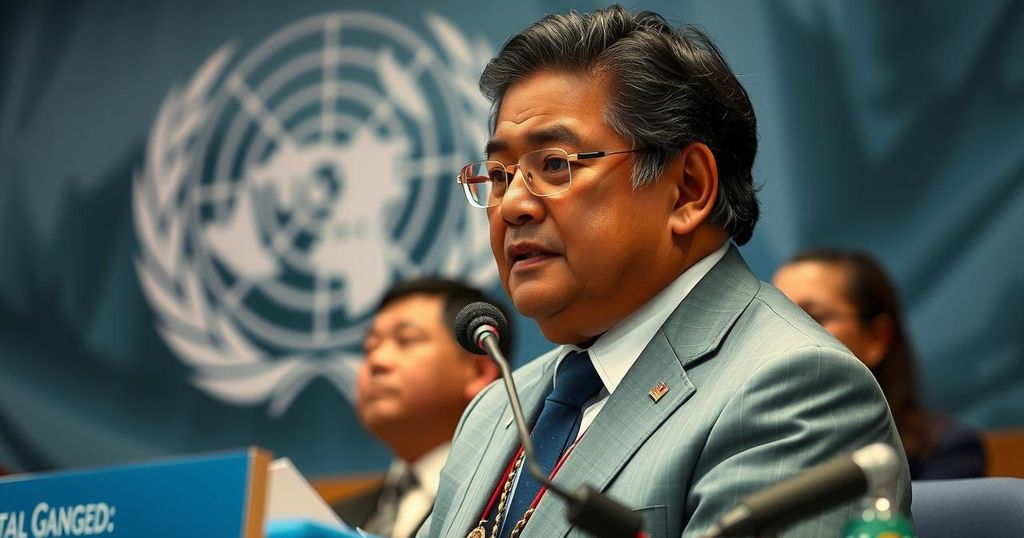Papua New Guinea Prime Minister Commits to UN Climate Conferences with Emphasis on Forest Conservation

Papua New Guinea’s Prime Minister James Marape has pledged his country’s reinvolvement in UN climate talks after boycotting this year. He emphasized the importance of prioritizing forest conservation at these summits, expressing discontent with past discussions. Papua New Guinea aims to advocate for accountability from high carbon-emitting countries, especially during the forthcoming COP30 summit in Brazil, and considers supporting Australia’s bid for COP31 in 2026 if forestry remains a focus.
Prime Minister James Marape of Papua New Guinea reaffirmed his country’s commitment to participate in the upcoming UN climate summits after boycotting this year’s talks. During an interview, he emphasized that future discussions should prioritize forest preservation, which he deems vital for combatting climate change. Marape criticized the prior talks in Azerbaijan, asserting they failed to respect forest stakeholders, and underscored the necessity of carbon conservation through forest management. Furthermore, he expressed support for an Australian initiative to co-host COP31 in 2026, contingent on forest conservation featuring prominently in the agenda.
Papua New Guinea, renowned for its extensive rainforests, missed the COP28 talks, which, according to Marape, did not adequately address essential forest business matters. The nation is highly vulnerable to climate change impacts and is involved in a significant legal proceeding regarding climate accountability, alongside four other Pacific nations. The Prime Minister, in his commitment to the COP30 summit in Brazil, aims to promote accountability among countries contributing to carbon emissions, highlighting the critical nature of maintaining healthy forests as an effective mechanism for climate stabilization.
Papua New Guinea holds a strategic position in the global conversation on climate change, given its extensive rainforests, which are often referred to as the ‘lungs of the Earth.’ These forests play a crucial role in mitigating carbon emissions. However, the nation faces significant economic challenges and threats from climate change, making forest protection not only an environmental priority but an economic necessity. The Prime Minister’s engagement in international climate talks reflects a broader concern shared among Pacific nations, which are on the frontlines of climate impacts. The COP conferences serve as vital platforms for nations to establish climate commitments, yet the effectiveness of these discussions has come under scrutiny, especially for forest-dependent countries.
In summary, Prime Minister James Marape’s announcement to resume participation in UN climate negotiations highlights Papua New Guinea’s dedication to advocating for forest conservation in the climate agenda. By expressing dissatisfaction with previous talks and rallying support for future discussions, Marape positions his country to play an active role in shaping climate policy that addresses the critical connection between forestry and carbon management. The upcoming COP30 summit in Brazil and the potential co-hosting of COP31 by Australia symbolize significant opportunities for the Pacific region in the global climate movement.
Original Source: www.fox28spokane.com






